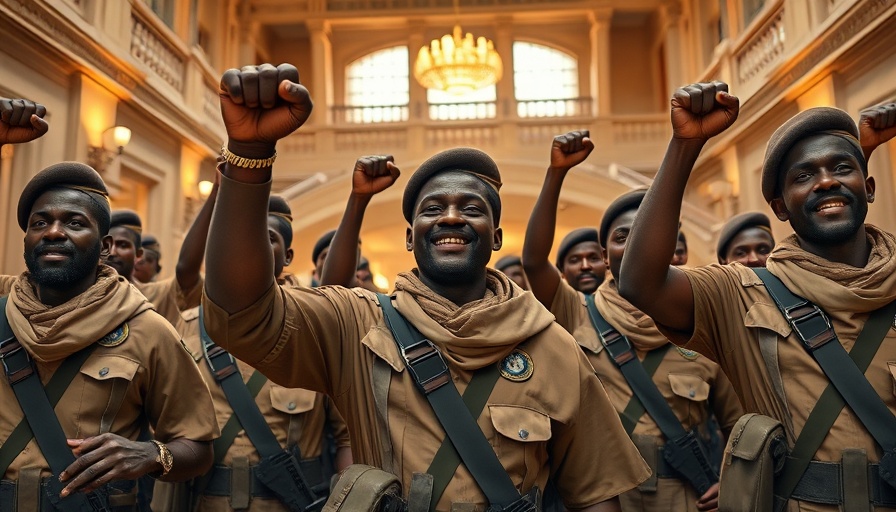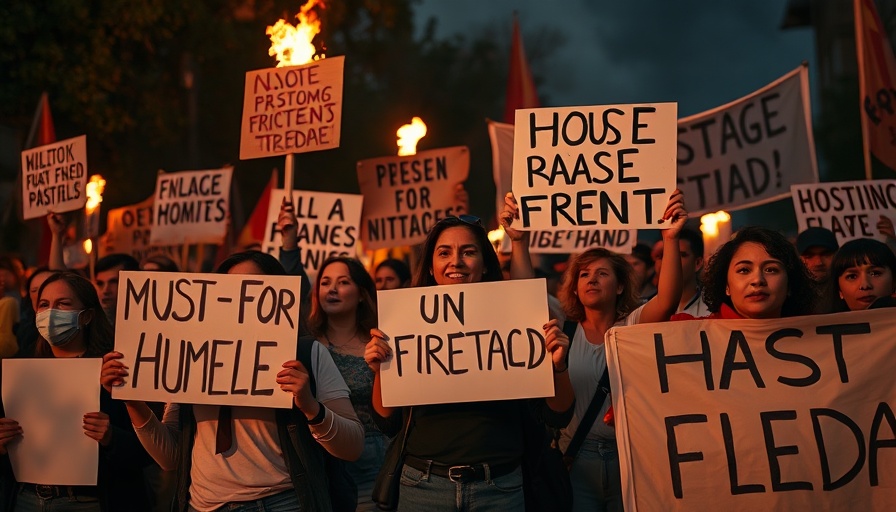
Sudan's Presidential Palace: A GameChanger?
In a decisive moment in Sudan's ongoing civil war, the Sudanese Armed Forces (SAF) have successfully recaptured the presidential palace in Khartoum. This strategic victory represents not only a gain in territorial control but also a powerful symbol for a military-led government attempting to legitimize its rule against the paramilitary Rapid Support Forces (RSF). While jubilant scenes filled the streets as soldiers celebrated this milestone, the road ahead remains fraught with challenges.
The Battlefield Landscape
For two years, the SAF has been engaged in a relentless struggle, initially losing control of the capital early in the conflict. The recent advance into city center areas marks significant progress, pushing RSF forces out of critical government buildings. However, pockets of resistance remain, suggesting that while the palace is secured, the conflict is far from resolution. RSF units continue to pose a threat through guerrilla tactics, with reports of drone attacks highlighting their persistent ability to strike back.
What’s at Stake?
The triumph in recapturing the presidential palace could alter the course of the war, enhancing the SAF's position as it aims to reclaim central Sudan from the RSF. This battle isn't merely about land; it plays into larger dynamics of power as General Abdel Fattah al-Burhan's government aspires to solidify control across the nation. With General Hemedti leading the RSF and holding Darfur, the SAF’s advance may embolden them to push their influence even further while deepening the country’s tragic territorial divides.
Able to Shift Tides?
This pivotal moment prompts key questions—will this military victory translate into a sustainable peace, or are we witnessing just another chapter in a protracted conflict? With both factions entrenched in their ideologies and struggles for dominance, the future remains highly unpredictable.
Conclusion
As the situation unfolds, staying informed is essential. The implications of this recapture will resonate beyond Sudan's borders and could influence international diplomatic efforts. Understanding Sudan's complex dynamics will be crucial for those engaged in global affairs, humanitarian efforts, and legal systems responding to conflicts.
 Add Row
Add Row  Add Element
Add Element 



Write A Comment